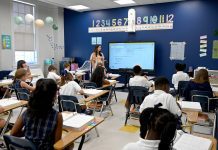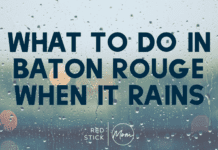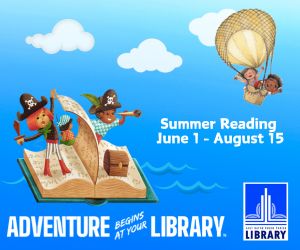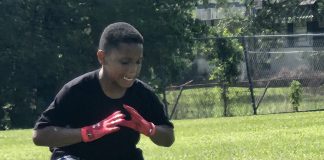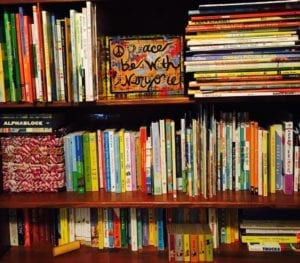 Books are HUGE in my household. Ever since I began studying early childhood education, I have collected children’s literature. My children were bound to love reading. And they do – especially my first born.
Books are HUGE in my household. Ever since I began studying early childhood education, I have collected children’s literature. My children were bound to love reading. And they do – especially my first born.
It was a dream come true to have my first child capable of sitting through a book as early as 4 or 5 months old. He would ask for books to be read to him over and over before he could even crawl. It was not forced. Honest! It just came naturally to him. When friends and family asked about gifts for his first Christmas, I said, “Books!” because books were indeed his favorite “toy.”
As a new mother and an early childhood educator, I was tickled with joy and thought that we needed EVERY book ever written to be a part of our collection.
My opinion, though, of “all books are good books” didn’t take long to change.
To be honest, I am not sure exactly what started my “book critic” mentality. All of a sudden, books that I had in my collection for years were starting to bother me. Books that I had taught with in many classroom lessons started to make me question.
I guess it was hearing my own voice read to my own child that really started the path to refining my book choices.
It was in listening to myself read these books out loud to my child in the SAME voice I used to share simple disciplines or family values that made me stop, think, and listen with more intentionality. When I began listening harder to the words I was reading aloud to my child, I noticed I didn’t like all the things I was hearing.
It didn’t take too long for me to notice that books were quickly becoming a part of my parenting as well as a favorite pastime. Reinforcing messages over and over right before my eyes. I knew I needed to be more deliberate about what books entered our home. Because, let’s face it, the messages were being given whether I liked it or not.
I began to read cover to cover with a more critical mindset before reading it out loud to my child or allowing it to be a part of our at home library.
Without even really knowing it, I developed a little checklist of criteria for a “good” book. And I also developed a few guidelines for why I would put a book back on the shelf.
Good Book Points
What gets a point in my book?? :: If the answer is YES to one of these questions, I consider it a keeper!
- Does the book teach a lesson? Is it a lesson that reinforces something my family holds valuable?
- Does the book teach about a behavior or part of life that we are currently working on? (e.g. potty training, using kind words, adding a new baby to the family)
- Does the book reinforce or introduce academic foundations? Does the book make learning seem FUN? Does the book teach simple skills hidden in silliness? (e.g. alphabet, counting, geography, etc)
- Is the book an interesting nonfiction read? Does it encourage curiosity and a love for questions?
- Does the book display images and texts from other cultures, walks of life, and inspire a sense of acceptance for all people?
- Does the book encourage laughter, singing, or movement?
My list of questions to ask that might reveal a book is not a good fit for our family ::
- Does a book condone violence or meanness? Does the book display bullies without successfully rolling out a message that the behavior shown is NEVER okay.
- Am I reading this book because it is a “classic” but it actually teaches poor messages or outdated ways of thinking? Does the book stifle open-mindedness?
- Does the book glorify gender-specific behavior … (e.g. boys love trucks or girls where dresses and bows)
- Is this book confusing or sending mixed messages? Does the book make light of or glorify little naughty behavior? (e.g. when a character is smiling and writing on the wall with a crayon in the story, it doesn’t matter what happens next, you better believe my child was just shown the message that it is fun to write on the wall with crayons!)
I am not an advocate of censorship. And I very much believe that multiple points of view should be read and considered. However, for the beginning years of my children’s lives, I am working hard with my family to become more intentional about the way we spend our time. What we read (especially the books we read over and over again!) forms us as humans. I truly believe we should use books as powerful tools to help our children become beautiful, successful, and intelligent adults!
No matter the age of your children, I encourage you to make your own little family checklist of criteria to look for in your children’s literature as well as reasons you would put a book back and choose another one!


